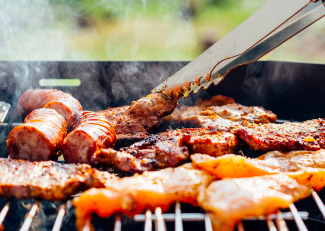
Barbecue has African roots - the word “barbecue” derives from the Hausa people of West Africa’s “babbake” which describes the fire pit roasting of meats. It’s a connection not lifted up when the latest celebrity food critic searches for the best brisket in Texas among restaurants owned and run by white culinary pros.
But there’s another reason for this “historical amnesia”…
Enslaved Africans often had to get creative with spicing, salting, and heating scrap meats - ribs, pork bellies, entrails, etc.
Another reason we don’t hear about Black pitmasters is due to a generational divide.
Making barbecue, like being a landscaper or janitor, is labor-intense work.
At the turn of the 21st century, Black entrepreneurs turned away from these professions to ward off white rage aimed towards their business success.
Johnny Walker of Mama Jean’s BBQ described it perfectly: “[Black parents] didn’t want [their children] to be cooks. There was a narrow scope of professions that… you were allowed to take part in.”
In short, having MORE choices educationally and professionally for us contributed to a shortage of Black grill masters today. Harmful tropes that racists deliberately associated with Black foods didn’t help, either! Today, many Black chefs refuse to cook traditionally Black food.
Meanwhile, the narrative of good American barbecue is dominated by white men that fail to give due credit to Black cooks who have ALWAYS been in the kitchen.
On Black History Year’s recent episode, “Liberation, Fried Chicken, and Owning Our Culture,” food writer Adrian Miller and Chef Rock Harper explore soul food and its erasure, and how we got to a place where we’re told our food traditions are toxic.
Stream Black History Year anywhere you find podcasts. It’s time to lift up our food culture!